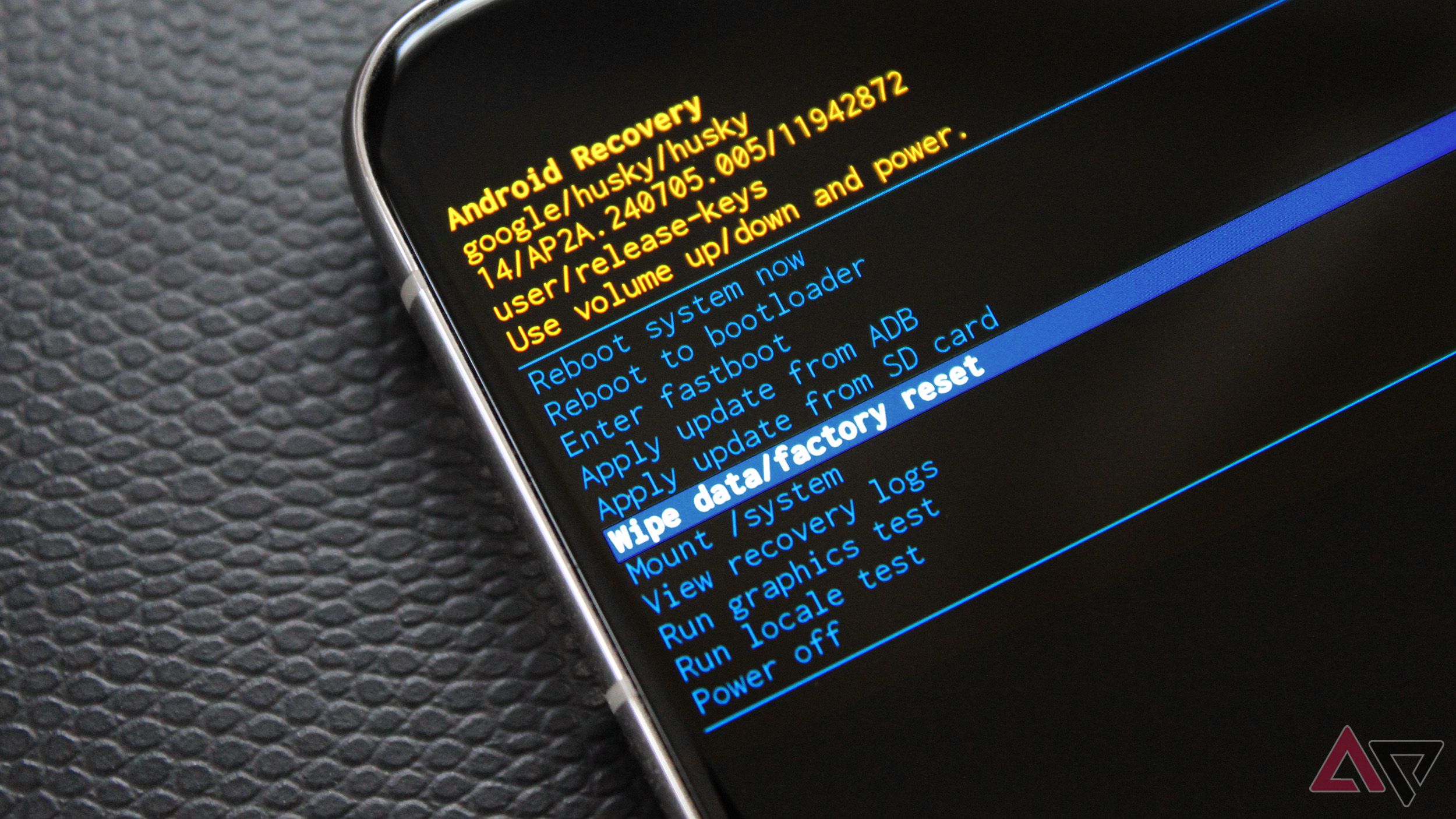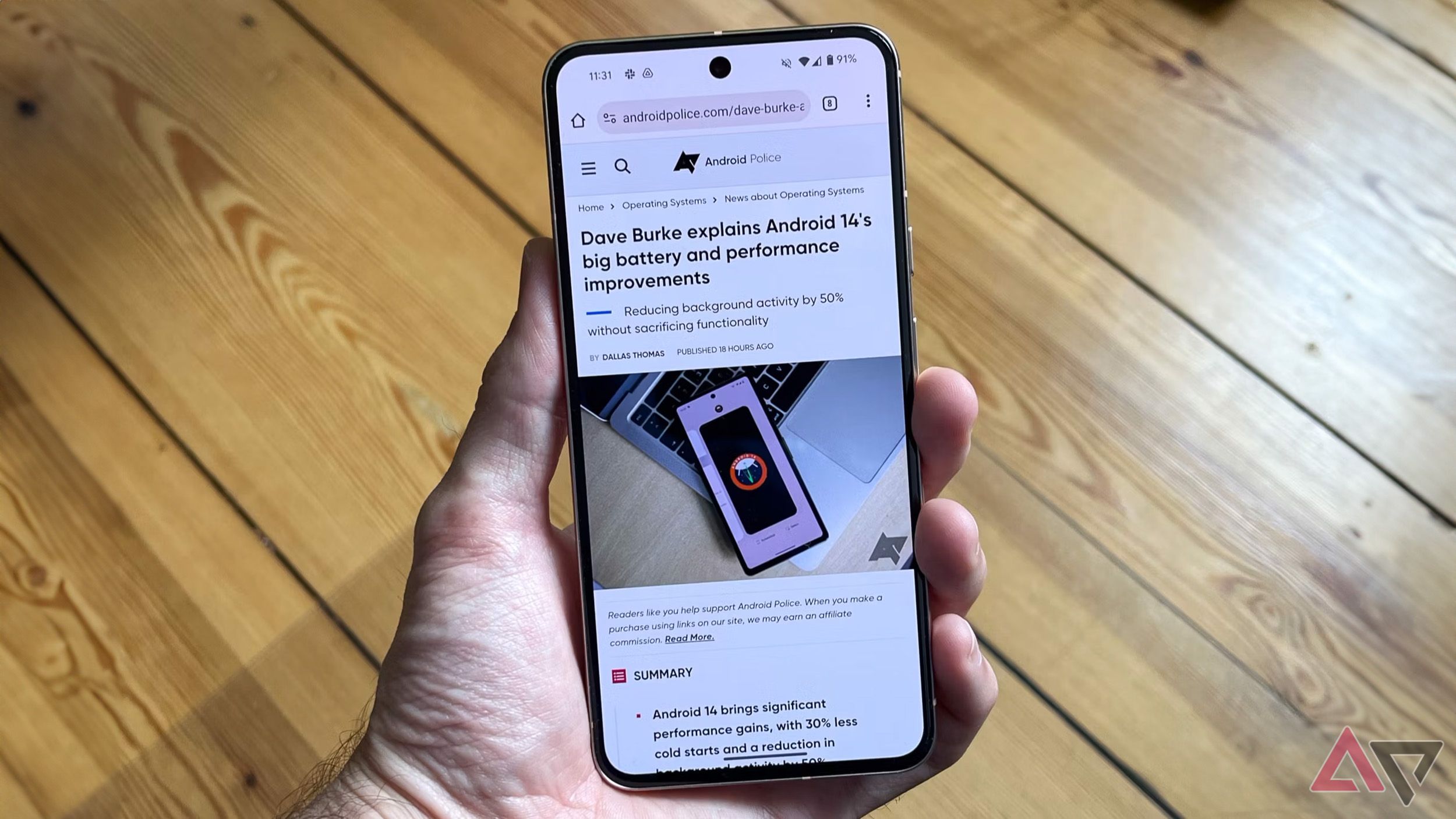


Back when the iPhone 4 was dropping calls and Antennagate was in full swing, Apple’s disastrous response was basically “You’re holding it wrong.” Now, Pixel 6 owners are facing bricked devices after an update, and Google says user behavior is to blame — granted, its advice is something people could realistically do, but it’s no consolation to customers whose expensive phones became paperweights through no fault of their own.
This week’s top Android headlines also see Google throw a wrench into the RCS encryption scene, and we get the last handful of Samsung leaks just ahead of next week’s Galaxy Unpacked. Meanwhile, Gemini is breaking more Google Assistant functionality than we thought, and CMF by Nothing is breaking onto the scene.
Early in the week, we reported that some Pixel 6 owners were faced with bricked devices after factory resetting their phones. Affeced users had just finished installing the June Pixel Feature Drop, which was thought to be playing a role. As it turns out, the main problem was the factory resetting, because later in the week, Google acknowledged the issue and offered a way to avoid it: Don’t wipe data on your Pixel 6 series device within 15 minutes of installing an update.
Google even added a popup to the new version warning people not to factory reset the device for 15 minutes. While this is helpful for people who hadn’t already installed the update, it doesn’t do much for those who were affected by the bug and are left with broken phones. Google hasn’t made a public statement about its plans to make these customers whole, but the right thing would be to refund or replace faulty units even outside of warranty.

Main Story
Wait for 15 minutes!
The rollout of RCS has been ongoing for over a decade now, and to say that things have been a bit messy would be an understatement. First, almost nodoby adopted it except for the occasional carrier looking to make it into a proprietary messaging service. Then, Google got involved and started pushing for some unification, but was quickly met with interoperability problems when the carrier versions didn’t use Universal Profile. So Google spent years getting everyone on board with Universal Profile and actually got all the major players in the fold, and then Apple decided it would finally support the standard.
But the trouble is, Universal Profile doesn’t include an end-to-end encryption protocol, only encrypting data in transit. Google works around this by using a proprietary add-on with the Universal Profile that enables E2EE, but companies like Apple would be unlikely to use this proprietary code in their own implementations.
Last year, Google threw its weight behind a new message encryption standard called MLS, or Messaging Layer Security. This week, code found in the latest Google Messages APK suggests that the company is now implementing MLS, and that it could soon be the default RCS encryption method for the app. The bad news is that Google is pushing yet another messaging standard after RCS and the Universal Profile, but the good news is that if history repeats itself and more companies adopt MLS, we could end up with an encrypted cross-platform messaging standard built right into our phone numbers.

Main Story
Messaging Layer Security (MLS) is on its way
When Google’s Gemini AI chatbot became available as an Android app, we quickly learned making it the default assistant broke several features we had enjoyed in Google Assistant. For instance, Assistant Routines won’t work at all, though it seems like that could soon change.
One consequence that nobody spotted until this week was the fact that the Broadcast button in the Google Home app stops working when you have Gemini set as your default assistant. Oddly, Gemini itself can handle broadcasting to Google Home or Nest smart speakers via the Google Assistant if you ask it to, but the same functionality becomes broken in the Google Home app the second you set Gemini as your assistant.

Main Story
Broadcast: I hate this
You can usually tell it’s a Carl Pei company by how naturally the hype-building process comes to it. After garnering a cult following with OnePlus and then repeating that feat with Nothing, Pei is trying for the hat trick with Nothing sub-brand CMF. And with the CMF Phone 1 due out this Monday, July 8, the company has been dutifully teasing the new budget handset on whatever you want to call Twitter, with closeups carefully framed to screw with our expectations.
This week, the glamor shots got more revealing, and we learned that the camera system will feature a 50MP Sony shooter. The Phone 1 then bared all when a leak showed off the front of the phone on the same day CMF finally let us see the entire back. It turns out those screws will be used to swap out backplates and add accessories like kickstands, and the front of the phone looks almost just like a Pixel 8 with its reasonably sized, symmetrical bezels. In case you can’t tell, we’re buying the hype.

Main Story
CMF may have been inspired by Google
With Galaxy Unpacked set for next week on July 10, you’d think we already knew everything there was to know about the lineup. But it’s more than just foldables and earbuds this year, as Samsung’s launching two entirely new product lines: The Galaxy Watch Ultra and the Galaxy Ring, which you can think of as a fitness band without the screen. While Galaxy Watches aren’t new, a luxurious top-of-the-line model capable of rivaling the Apple Watch Ultra is — and this week, we learned Samsung’s flagship wearable has some beastly specs. Even the standard watch line is in for some big performance gains thanks to an upgraded Exynos wearable chip.
But most eyes will be on Samsung’s foldable lineup next week. We already knew plenty about the Galaxy Z Fold 6 and Z Flip 6, but a leak this week basically showed us the entire spec sheet and sales pitch for both. And while it looks a lot like last year’s model, a set of leaked renders gave us an all-around look at the Galaxy Z Flip 6. Thankfully, we’ll be looking at the real deal in a matter of days.

Main Story
The foldables will sport an IP48 rating